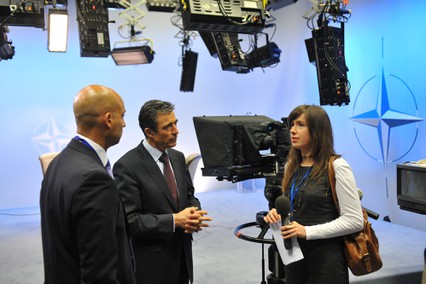Description
A foreign news correspondent is a journalist who is responsible for reporting news from another country. This may mean covering anything from wars to politics to living conditions and attitudes in this country. Foreign correspondents are the public's eyes and ears across the globe. Unlike other journalists, the correspondent's audience is often not near enough to witness the events for themselves. Correspondents may be the public's only source of information about the events in a foreign country. Foreign correspondence is a challenging career with a potential for travel, excitement and a lot of hard work.
Tasks:
- Gather and analyze events of international importance, and write news stories for newspapers, magazines, and radio and television broadcasts
- Once the news has been gathered, foreign correspondents prepare reports and review the copy for errors in grammar, punctuation, content, and accuracy
- Interviewing people in a range of different circumstances
- Building contacts to maintain a flow of news, for example, police and emergency services, local council, community groups, health trusts, press officers from a variety of organisations, the general public, etc
- Seeking out and investigating stories via your contacts, press releases and other media
- Attending press conferences and asking questions
- Attending a variety of events, such as council meetings, magistrates' court proceedings, football matches, talent contests, etc
- Reacting to breaking news stories
- Recording interviews and meetings using shorthand or technical equipment
- 'Live' online reporting or real-time blogging when covering important events - a growing area of work
Key skills for Foreign Correspondent:
- Passionate about your work
- Curiosity and inquisitiveness
- Interest in world events
- Ability to speak the local language
- Ability to work under pressure
- Multiple media skills
Average Salary (2013):
United Kingdom: £25,000 per year
United States of America: $45,000 per year
Australia: AU$45,000 per year
Qualifications and training required:
Candidates interested in becoming foreign correspondents should earn a bachelor’s degree in journalism, mass communications, or a similar field. Those interested in taking jobs in publication houses should specialize in news-editorial journalism, while those keen on broadcasting careers should focus on television and radio news production. Since the Internet also offers great employment opportunities, it is a good idea to pick up the basics of computer software use.
Further studies in journalism can prove beneficial in finding better opportunities. A master’s or doctorate can also help prepare a correspondent for related careers as researchers, theorists, advertising specialists, public relations specialists, and journalism teachers.
Apart from academic qualifications, candidates need a significant amount of practical reporting experience. A number of publications and broadcasting stations offer internship programs. Students of journalism can also opt for summer or part-time jobs and should work on college magazines and newspapers. Such experience is advantageous, and candidates with hands-on training are often preferred over others by employers.


